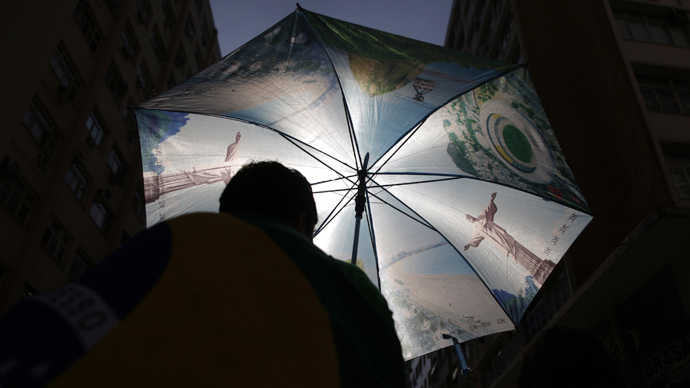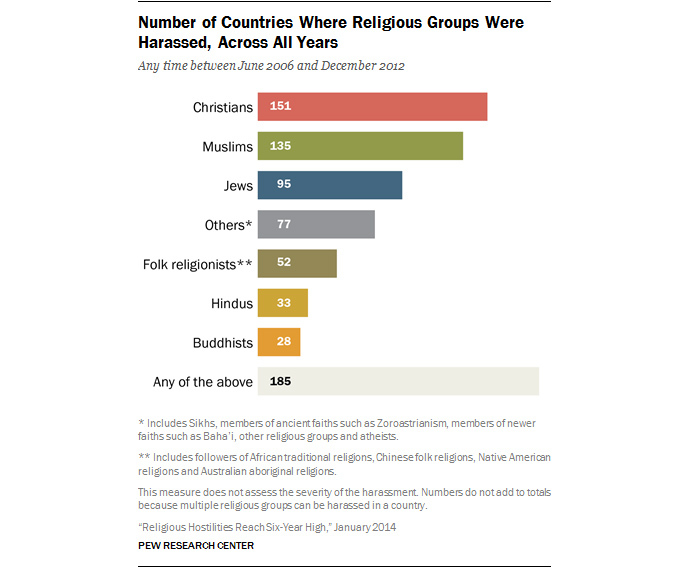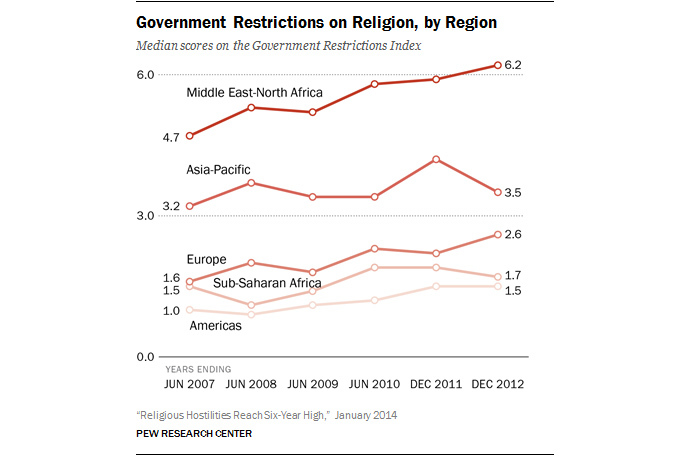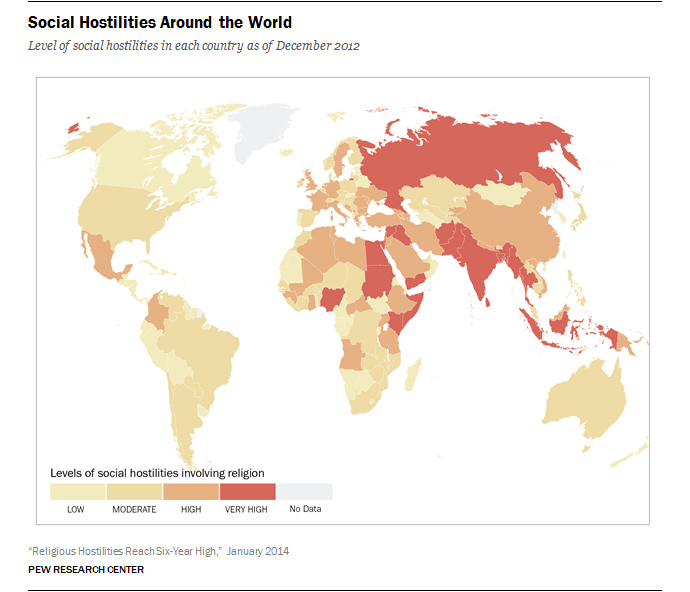Global religious hostilities reach six year high

Violence and discrimination spurred by rival faiths has reached a six year high, according to a new Pew Research Center report. The sharpest spike was in the Middle East and North Africa. Christians remain the most highly oppressed religious group.
“A third (33%) of the 198 countries and territories included in the study had high religious hostilities in 2012, up from 29% in 2011 and 20% as of mid-2007,” noted the report.
It is thought the Arab Spring helped contribute to the spike in religious conflicts. A report released by the same research center in June last year noted that the Arab Spring had also contributed to global restrictions on religion.
Religiously-motivated terrorism and sectarian violence occurred in a fifth of the countries in that year, Pew noted.
“There also was a significant increase in religious hostilities in the Asia-Pacific region, where China edged into the ‘high’ category for the first time,” stated Pew.
Besides social hostilities involving religion, around 30 percent of states themselves imposed restrictions on religious worship.
Overall, in 43 percent of the countries surveyed restrictions on religion were considered “high” or “very high,” but due to large populations of these countries this accounts for around 76 percent of the world's population in 2012.
As with the previous year, Pakistan had the highest levels of social hostilities revolving around religion, while Egypt practiced the most intense level of government restriction on religious expression.
Among the 7 major religious groups, Muslims and Jews experienced six-year highs in the number of countries in which they were harassed. However, Christians are still being harassed in the largest number of countries, 110 as compared to Muslims who were facing hostility in 109 states.

Out of the world’s most highly populated counties, Egypt, Indonesia, Pakistan, Russia and Burma were all found to be most restrictive in terms of religion – taking into account a combination of both governmental and social hostilities.
In Syria, Lebanon, Sri Lanka, Bangladesh, Thailand and Burma social hostilities related to religion rose to the “very high” level in 2012 for the first time in the study. According to a recent report by the Christian group Open Doors more Christians were killed in 2013 in Syria alone than the entire global total in 2012.

There were only seven countries found to have had mild decreases in social hostilities specifically – Timor-Leste, Cote d'Ivoire, Serbia, Ethiopia, Cyprus, Romania and Cambodia – as conflicts which occurred in 2011 did not reoccur in 2012.
Additionally, the center noted that the harassment of women over matters regarding religious dress occurred in nearly a third of countries in 2012 up from a quarter in 2011 and less than 7 percent in 2007.
The report was released on Tuesday – two days ahead of Religious Freedom Day in the US. The Washington-based Pew Research Centre is non-partisan and in reporting the rise, did not provide specific interpretations or reasons why there have been notable rises in hostilities towards Christians, Muslims, Jews and their designated ‘other’ category, which includes Sikhs, Bah'ais and atheists.














